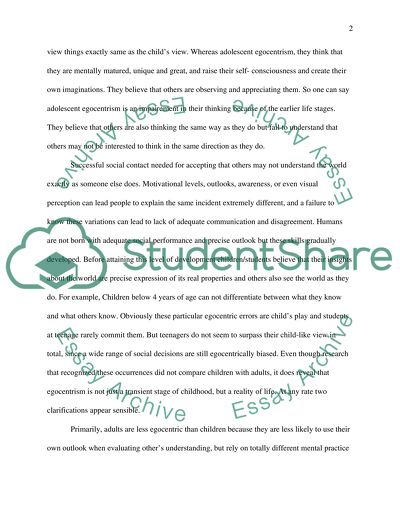Cite this document
(“Egocentrism Essay Example | Topics and Well Written Essays - 1500 words”, n.d.)
Retrieved de https://studentshare.org/psychology/1539803-egocentrism
Retrieved de https://studentshare.org/psychology/1539803-egocentrism
(Egocentrism Essay Example | Topics and Well Written Essays - 1500 Words)
https://studentshare.org/psychology/1539803-egocentrism.
https://studentshare.org/psychology/1539803-egocentrism.
“Egocentrism Essay Example | Topics and Well Written Essays - 1500 Words”, n.d. https://studentshare.org/psychology/1539803-egocentrism.


